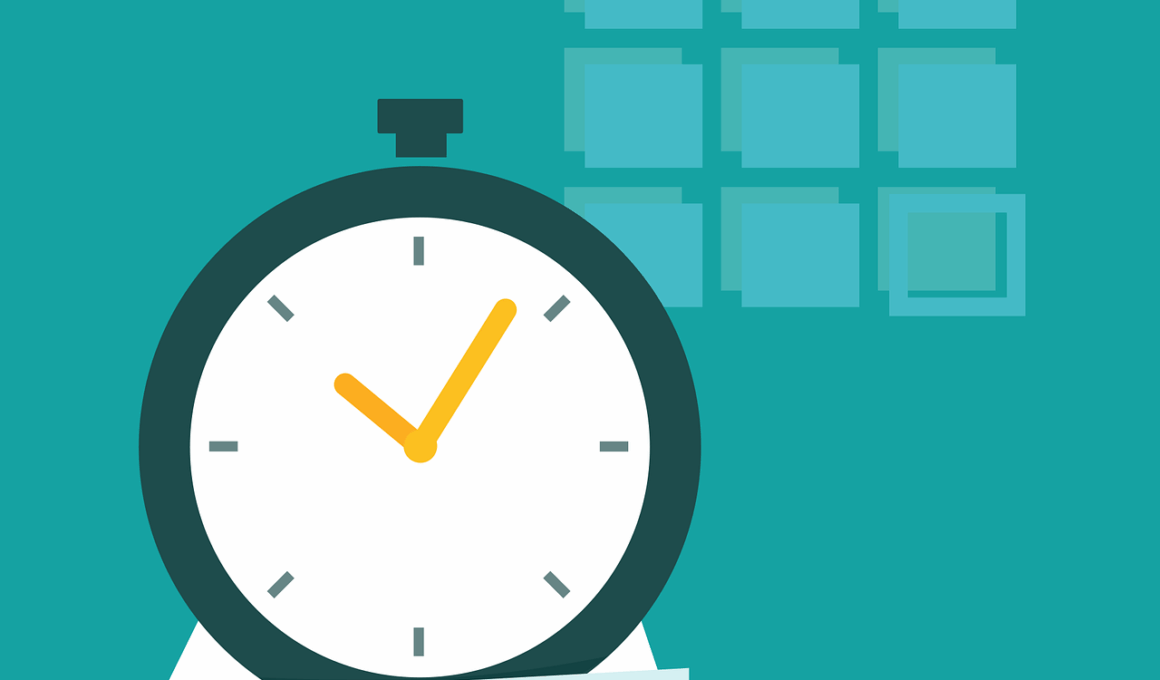Creating a Stress-Free Environment to Enhance Weight Loss Success
Managing stress is crucial for effective weight loss, as stress can lead to emotional eating and poor lifestyle choices. Creating a stress-free environment is the foundation for reducing these triggers and helping individuals maintain their weight loss goals. Begin by reassessing your living space. Ensure it is organized, clean, and uplifting. An uncluttered environment can reduce feelings of anxiety. Incorporate elements of nature such as plants or fresh flowers to promote relaxation and calmness. Aromatherapy can also play a significant role; essential oils like lavender and chamomile are known for their stress-relieving properties. Allocate time for relaxation and self-care. Incorporate practices such as meditation, yoga, or deep breathing exercises into your daily routine. Regular physical activity not only supports weight loss but also helps alleviate stress. Find an exercise routine you enjoy, whether it’s dancing, walking, or working out at the gym. Lastly, limit exposure to negative media influences and social comparisons, which can increase stress levels. Surround yourself with supportive individuals who encourage your journey to a healthier lifestyle, thereby creating a positive support system.
Stress management techniques can significantly aid in achieving desired weight loss results. Practicing mindfulness is one effective approach to tackle daily stressors. Mindfulness teaches us to focus on the present instead of worrying about past events or future outcomes. This practice can help prevent emotional eating caused by stress. Incorporate mindful eating habits into your daily meals; this involves paying attention to taste, texture, and how food makes you feel. Chew slowly and appreciate each bite, helping prevent overindulgence. Another beneficial strategy is keeping a journal to document your thoughts and feelings. This can assist in identifying stress triggers and developing coping strategies. Writing down your goals and accomplishments can enhance motivation, keeping you focused on your weight loss journey. Bolster your stress management routine by ensuring proper sleep hygiene. Poor sleep can exacerbate stress and impact weight loss negatively. Aim for 7-9 hours of quality sleep each night. Create a pre-sleep routine that promotes relaxation, such as reading or gentle stretching. Reducing caffeine or screen time before bed can also aid in achieving restful sleep.
Building Healthy Relationships to Combat Stress
Social connections play a vital role in managing stress, contributing to successful weight loss outcomes. Building healthy relationships with family and friends can foster a support system that encourages healthy habits and emotional resilience. Open communication is key to strengthening these connections. Share your weight loss journey and express your struggles; often, others can relate and offer helpful advice or encouragement. Group activities, such as cooking healthy meals together or participating in fitness classes, can strengthen bonds while promoting healthier lifestyle choices. Consider joining local weight loss support groups or online forums. Engaging in discussions with others experiencing similar challenges can help you feel less isolated. Celebrate your small successes with your support network, reinforcing positive behaviors. Avoid toxic relationships that contribute to stress; surround yourself with those who uplift and motivate you. It is essential to regularly check in with your emotional health. Spend time with those who truly make you happy and practice gratitude, acknowledging the positive aspects of your life and relationships. Building strong, supportive connections can lead to reduced stress levels and a more successful weight loss journey.
Creating a stress-free environment also includes being mindful of external stressors. Make concerted efforts to reduce noise and distractions in your home or office environment that may hinder your focus and relaxation. If possible, create a designated area for leisure activities and relaxation. This can be a comfortable chair or spot in your garden, free from electronic devices. Engage in hobbies that bring you joy and help alleviate stress. Activities such as painting, gardening, or reading can offer a wonderful escape from everyday pressures. Additionally, set boundaries to protect your time from overwhelming commitments. Learning to say “no” to unnecessary obligations can significantly reduce stress levels. It’s crucial to allow yourself time to recharge; consider designating particular days or times solely dedicated to self-care. Practicing gratitude daily can help shift your mindset towards positivity and fulfillment. Reflect on what you appreciate about yourself and your life; this can reduce stress and promote a healthier perspective on your weight loss journey. Finally, be patient with yourself. Understand that weight loss is a gradual process and can be affected by various factors, including stress.
The Role of Nutrition in Stress Management
Nutrition plays a significant role in managing stress levels and supporting weight loss efforts. A balanced diet can enhance mood and energy while reducing stress-related cravings. Focus on incorporating whole, nutrient-dense foods like fruits, vegetables, whole grains, lean proteins, and healthy fats into your meals. These foods provide essential vitamins and minerals to support overall well-being. Opt for foods rich in Omega-3 fatty acids, such as salmon and walnuts, known to help fight stress and improve mood. Probiotics found in yogurt and fermented foods can also influence mental health positively; consider including them as part of your regimen. Stay hydrated, as dehydration can exacerbate stress and fatigue. Aim for at least 8 glasses of water per day, adjusting for physical activity. Plan and prepare meals ahead of time to minimize stress around decision-making. Meal prepping also helps avoid unhealthy takeout options that can derail weight loss progress. Lastly, indulge occasionally; enjoying a small treat in moderation can satisfy cravings and prevent feelings of deprivation that might cause stress.
Regularly assessing your stress levels is essential for success in maintaining weight loss. Pay attention to the physical signs of stress, such as headaches, tension, or fatigue. Acknowledge your emotional responses, ensuring you don’t dismiss your feelings. Implementing regular check-ins with yourself can help gauge your stress levels and provide insight into necessary adjustments. Incorporating short breaks into your day can also minimize the build-up of accumulated stress. Step outside for fresh air, practice a few deep breaths, or engage in light stretching exercises. These mini-breaks can significantly improve both your mood and focus. Moreover, create a dedicated wind-down period each evening to detach from the day’s stressors. Engage in calming practices like reading or listening to soothing music in this time. Explore different stress-relief techniques to discover what works best for you; whether it’s warm baths, journaling, or meditation, finding effective coping mechanisms is vital. Lastly, keep in mind that reaching out for professional help, such as a therapist or counselor, can offer valuable support in navigating stress, ultimately enhancing weight loss success and overall well-being.
Conclusion: Embracing a Stress-Free Lifestyle
Embracing a stress-free lifestyle is pivotal for effective weight loss and maintaining long-term results. By understanding the relationship between stress and weight gain, individuals can create environments conducive to healthier living. It is essential to implement various stress-management strategies to develop a holistic approach. Start by redesigning your living spaces to promote peace and limit stress triggers; adopting mindful eating habits can further reinforce your weight loss goals. Fostering healthy relationships can provide emotional support and motivation, and nutrition must not be overlooked in this journey. Regular exercise, hydration, and engaging in enjoyable activities will help enhance your well-being. Regularly assess your stress levels and allow yourself ample time to recharge and unwind from daily pressures. Remember that seeking professional guidance is never a sign of weakness but rather a proactive approach to maintaining a healthier lifestyle. The journey to stress-free living is ongoing, requiring commitment and adaptability but is ultimately rewarding when aligned with your weight loss aspirations. Lastly, celebrate your achievements, no matter how small, as they are vital steps toward a healthier, happier you.


